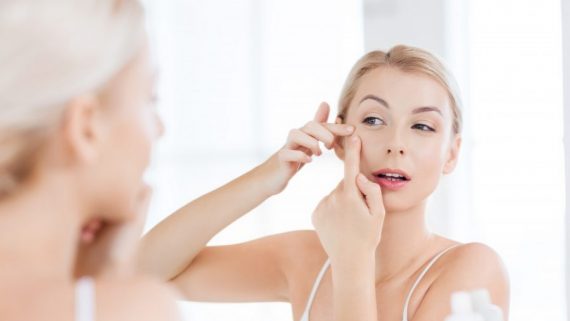No two people are born completely identical. Even in the case of twins, personalities, preferences, and even minute physical differences, makes each person a unique individual. In the same way, the appearance and symptoms of skin conditions vary from person to person.
Eczema, psoriasis and prurigo nodularis (PN) are three common diagnoses that have no known cure, yet they affect the lives of millions across the globe. The symptoms of each disease are remarkably similar, and yet they each maintain distinct differences, making general treatment options difficult to prescribe. In celebration of Healthy Skin Month, here is a brief explanation of these three diseases, and what symptoms they each manifest.
Eczema
Eczema is an umbrella term used to describe a condition in which the skin becomes rough, inflamed, and causes itching and bleeding. Sometimes also referred to as Atopic Dermatitis, eczema is a hypersensitive allergic response in which the immune system attacks an unspecified stimulant inside or outside the body. Symptoms include:
- Dry skin
- Redness
- Itching/Bleeding
- Skin cracking
According to the National Eczema Association, while all types of eczema can cause redness and itching, specific types of eczema, such as Nummular eczema, can leave open, crusted or “weeping” sores. Fortunately, eczema does tend to appear in “flares”, and can subside over time.
Psoriasis
Similar to eczema, psoriasis causes itching, dry patches on the surface of the skin. The primary difference is that psoriasis is a chronic autoimmune condition that results in the production of too many skin cells. These skin cells cause thick, scaly patches to form, which can limit flexibility and cause pain. Other symptoms of psoriasis include:
- Red patches covered in thick, silvery scales
- Itching, burning, soreness
- Swollen and stiff joints
Prurigo Nodularis (PN)
Unlike eczema and psoriasis, PN is an intensely itchy skin condition that is hypothesized to be primarily caused by a thickening of nerve endings that sends a strong itching impulse to the brain. When repeatedly scratched, these nerve endings develop thick, hard nodules on the surface of the skin that can scar. Patients diagnosed with PN often find themselves scratching until pain or bleeding occurs, even while asleep. Similar to the effects of poison ivy, the more scratching that occurs, the more the nodules form and spread.
Treatment and Research
Unfortunately, there is no known cure for these conditions. Physicians at ActivMed are looking to change this reality by continually seeking new treatment options for patients diagnosed with eczema, psoriasis and PN. Those who qualify and participate in a clinical study will see a dermatologist at no cost, and receive compensation for travel. If you or someone you know has experienced chronic, itchy skin conditions, you may be eligible to participate! To learn more on how you can be involved, CLICK HERE.
Acne is a skin condition that occurs when hair follicles become clogged with oil and dead skin cells. Pimples, blackheads, and bumps on the face, chest, and back are all typical of acne. Acne is most common in teenagers and young adults, but can present at any age. Dealing with acne can be incredibly frustrating and embarrassing. You’ve probably heard an overwhelming number of tips and tricks for getting clear skin. Let’s talk about which of those tips hold some truth and which are simply myths.
Fact: If you’re prone to acne breakouts, excessive touching of your face can trigger breakouts and exacerbate acne symptoms. Every time you touch your face you’re introducing whatever germs your hands have come in contact with to your skin, so remember – hands off!
Myth: Don’t wear sunscreen; it will trigger a breakout. It’s all about choosing the right sunscreen. If you’re acne prone, steer clear of chemical sunscreens and opt for physical sunscreens which work by sitting on top of the skin to deflect UV rays. Physical blockers are made of zinc oxide and titanium dioxide and are great choices for people with sensitive or reactive skin.
Fact: Popping pimples does more harm than good. We think that popping a pimple will make it go away more quickly when in fact squeezing or picking can push bacteria further into the skin and lead to scarring.
Myth: Eating chocolate gives you acne. The role of chocolate and how it affects acne remains somewhat controversial. While studies don’t show that chocolate itself worsens acne, some studies have indicated milk products may influence acne because of the hormones and bacteria present in milk.
Fact: Tanning is not the answer. While evidence exists to show that sun exposure can improve acne symptoms, UV exposure is associated with a number of other dangerous drawbacks such as accelerated skin aging and an increased risk for skin cancer.
Myth: Acne is contagious. Unlike most bacterial infections, it is not contagious and cannot be spread from person to person.
While dealing with acne can seem like an uphill battle, being familiar with some important key facts may help when it comes to managing this condition. If you or someone you love is struggling with acne, ActivMed is currently enrolling in studies for those seeking new treatment options. Qualified candidates who participate will receive study-related care at no cost and receive compensation for travel. To learn more and see how you or someone you love may qualify for a study at our Portsmouth, NH location CLICK HERE or at our Beverly, MA location by CLICKING HERE.
Our blog provides general information about health and related subjects. This content should not be interpreted as medical advice.





